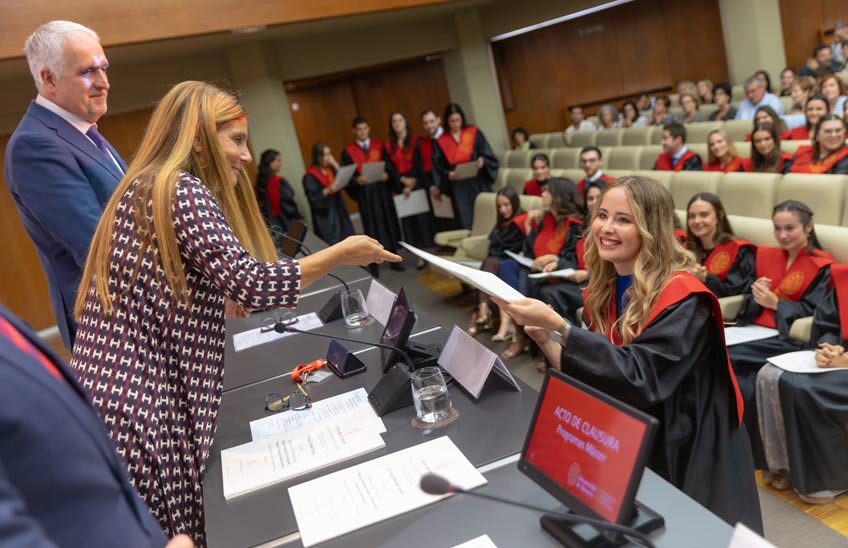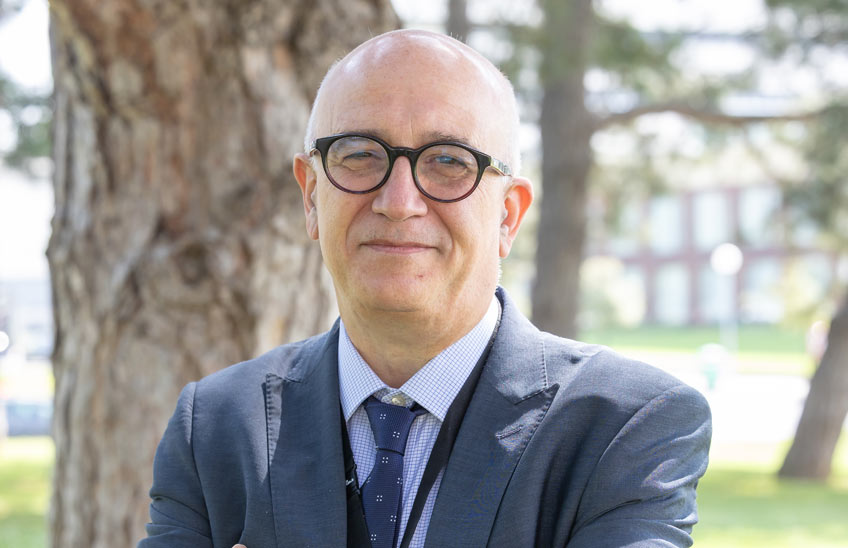Researchers analyze the health effects of exhibition to chemicals

PhotoManuelCastells/From left to right: Adriana Rodríguez, Myriam Benito, Amaya Azqueta and Ariane Vettorazzi.
26 | 11 | 2025
The School of Pharmacy and Nutrition of the University of Navarra participates in the European project PARC (Partnership for the Assessment of Risks from Chemicals), an initiative funded by the European Commission that brings together more than 200 institutions to advance in the assessment and preventive management of risks arising from exhibition to chemicals present in the everyday environment.
The project involves the professors of Toxicology Ariane Vettorazzi, Amaya Azqueta and Adela López de Cerain, together with the researcher Adriana Rodríguez and the PhD student Myriam Benito. Their work addresses two areas of special relevance: mycotoxins and non-genotoxic carcinogens.
"Constant exhibition low concentrations of multiple chemicals is a complex challenge for public health," explains Dr. Amaya Azqueta, who coordinates the University's participation in the study of non-genotoxic carcinogens. "Understanding how these compounds, which do not directly alter DNA, act is essential to improve their detection and assessment.
For its part, the team led by Dr. Ariane Vettorazzi focuses on mycotoxins, natural contaminants produced by fungi that can be found in food and feed. "Climate change and new analytical tools are revealing emerging mycotoxins whose impact is not yet well understood," she says. "Our goal is to assess the risk of groups such as alternaria toxins and eniatins and to provide evidence that will contribute, if necessary, to the regulation of their presence in the food chain."
Toxicology 2.0 to protect health and the environment
One of PARC's main lines of work is the development of Next Generation Riskassessment , based on faster, more ethical and accurate methods. These include New approach Methodologies (NAMs), which employ computational models, artificial intelligence and advanced cellular systems such as organs-on-chip.
"These tools make it possible to predict the potential danger of chemicals without resorting to prolonged programs of study with animals, which is an important scientific and ethical advance," says Dr. Azqueta.
The Toxicologygroup of the University of Navarra, founded by Dr. Adela López de Cerain, is a national reference in risk assessment and food safety. Its participation in the European PARC partnership, coordinated in Spain by the Instituto de Salud Carlos III and the CSIC, reinforces the University's commitment to public health-oriented research .
"Contributing to a European project of this magnitude allows us to generate useful knowledge for the authorities and to move towards a more preventive management of chemical risks", concludes Dr. Vettorazzi.


